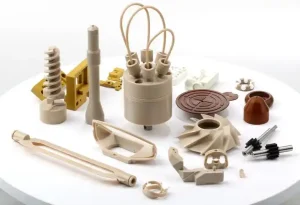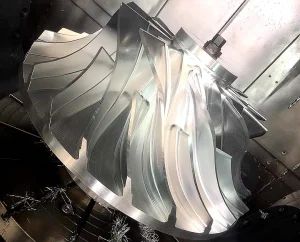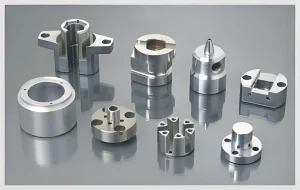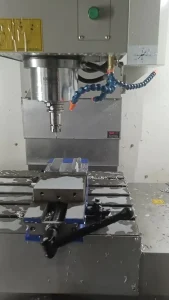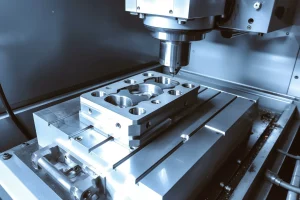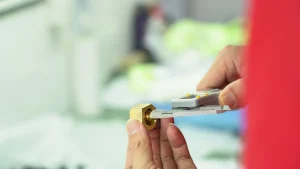Surgical robots that move precisely under shadowless lights, microscopic catheters that travel through blood vessels, orthopedic implants that silently support the body
–
these life-saving medical devices are all backed by a key manufacturing technology: precision CNC machining services. In the medical field, manufacturing is not just a technology but a responsibility, and CNC machining, with its unparalleled precision, reliability, and material adaptability, has become a cornerstone of precision manufacturing for medical devices.
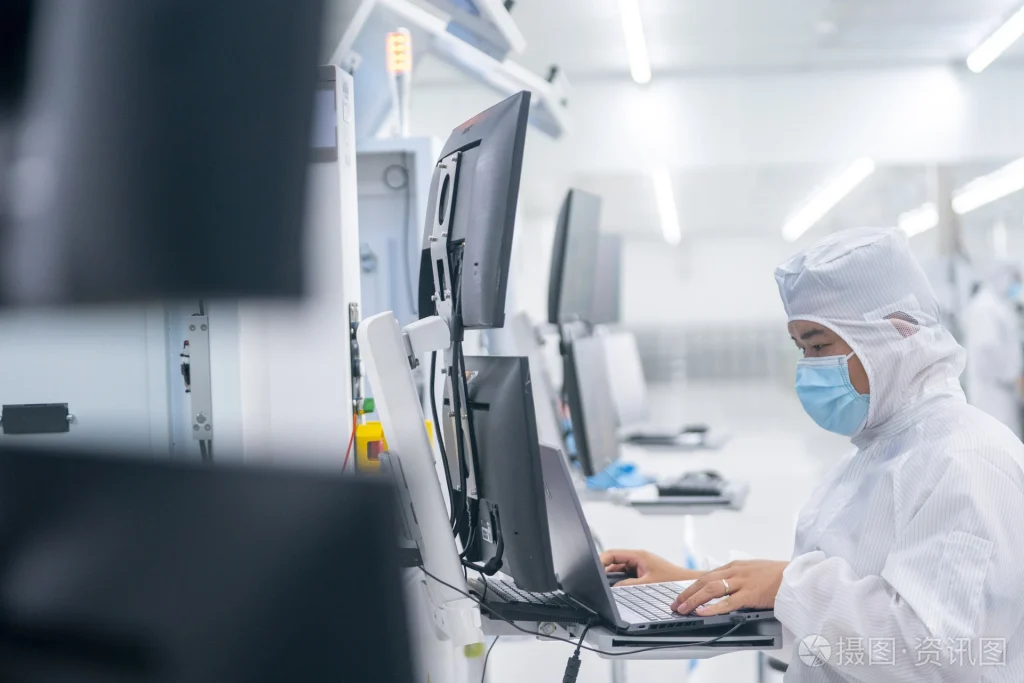
1. Strict requirements for medical equipment: precision is the lifeline
Medical device manufacturing is a field that is in direct dialogue with life and health, and its requirements go far beyond ordinary industry standards:
1.Micron-level accuracy: The cutting edge of surgical instruments, the contact interface between implants and bone tissue, and the precision optical components of diagnostic equipment often require dimensional tolerances to be controlled at the micron (μm) or even sub-micron level (e.g., ±0.005mm). The slightest deviation can affect the performance of the device, the effect of surgery, or the accuracy of the diagnosis.
2.Complex geometries: The human body structure is complex and changeable, and medical equipment must be highly compatible with it. Whether it is the biomimetic curved surface of joint replacement prostheses, the miniature complex lens set of endoscopic lenses, or the streamlined design of pacemaker housings, CNC machining’s powerful multi-axis linkage capabilities (especially five-axis CNC) are required for precise molding.
3.Biocompatibility and Material Challenges: Implants and devices in long-term contact with the human body must use materials with excellent biocompatibility, such as medical-grade titanium alloy (Ti6Al4V ELI), cobalt-chromium-molybdenum alloy, 316LVM medical stainless steel, and specialty engineering plastics such as PEEK. These materials often have high hardness, high toughness, and special thermal conductivity, which puts forward extremely high requirements for the processing process (cutting parameters, tool selection, cooling method).
4.Surface Finish and Sterility: A very high surface finish (Ra < 0.4 μm) is not only necessary to reduce friction and improve wear resistance, but also to prevent bacterial growth and facilitate thorough cleaning and sterilization. CNC machining can achieve an almost mirror effect.
5.Absolute reliability and traceability: Every part must be 100% reliable. Strict process control, detailed processing records, and a complete material traceability chain (from raw material batch to final finished product) are standard in medical CNC machining services to meet stringent regulatory requirements such as FDA, CE, ISO 13485, etc.
2. CNC Machining Services: How to Become the “Guardian” of Medical Precision
In the face of these challenges, modern CNC machining services stand out as ideal choices for medical device manufacturing with their core strengths:
1.Unparalleled Accuracy and Repeatability: Highly rigid machine tool construction, precision ball screw/linear motor drive, and nanometer-level resolution feedback system, combined with advanced CAD/CAM software programming, ensure stable micron-level accuracy. In mass production, consistency is critical.
2.Control complex geometries and micro features: Five-axis linkage CNC technology can complete the processing of complex space surfaces in one clamping, avoiding multiple clamping errors. High-speed milling (HSM) technology combined with tiny diameter tools (even as small as 0.1mm) can accurately process microscopic complex structures such as microvascular stents and nerve stimulation electrodes.
3.Dealing with difficult-to-machine materials: Professional CNC service providers are well-versed in the processing characteristics of medical materials:
Titanium alloy/superalloy: High-pressure cooling (HPC) or ultra-high-pressure cooling (HSS) technology is used to effectively solve heat dissipation problems, extend tool life, and ensure surface quality.
Stainless Steel: Optimizing cutting parameters prevents work hardening, guaranteeing dimensional stability and finish.
Specialty Plastics Like PEEK: Use sharp knives and suitable parameters to prevent material melting, burrs, or delamination.
4.Superior Surface Quality Control: Through meticulous toolpath planning, optimized cutting parameters (line speed, feed, depth of cut), and precise machine control, CNC can directly process high-finish surfaces, reducing secondary treatments such as subsequent polishing and reducing the risk of contamination.
5.Digitalization and Traceability Assurance: CNC machining is essentially digital manufacturing. From design model (CAD) to machining program (CAM) to machine execution (CNC), the whole process is digitally seamless. Combined with the MES manufacturing execution system, the parameters, operators, inspection data, batches of materials used and other information of each process can be completely recorded, and the whole process can be traced.
3. Key application scenarios: CNC is the ubiquitous life force
Surgical instruments: orthopedic drills, saw blades, precision forceps and shears, arthroscopic instruments, staplers, etc., which require extremely high hardness, sharpness, wear resistance and dimensional stability.
Implants: Artificial joints (acetabular cups, femoral stems), spinal fusion devices, bone plate nails, dental implants, craniomaxillofacial restorations, etc. Demands on biocompatibility, fatigue strength, and integration with bone tissue (surface treatments such as 3D printing often require CNC finishing).
Core components of diagnostic equipment: precision coil holders, collimators, sensor housings in medical imaging equipment (CT, MRI, ultrasound); Precision fluid control components, microfluidic chip molds, optical component bases, etc. in in vitro diagnostic equipment (IVD).
Minimally invasive interventional devices: Cardiac stents (and their manufacturing molds), catheter connectors, guidewire tips, micro sensor housings, etc., with small size and fine structure.
Medical equipment housings and structural parts: Pacemaker housings, insulin pump housings, ventilator valves, high-end housings for high-value equipment, etc., require precision sealing, beautiful durability, and ergonomics.
4. Choosing a professional medical CNC service provider: beyond the processing itself
CNC services for the medical industry are not as simple as operating machine tools:
1.Compliance First: Service providers must have ISO 13485 medical device quality management system certification and be familiar with regulatory requirements such as FDA QSR 21 CFR Part 820 or EU MDR. A clean production environment (at least particulate and temperature and humidity control) is often a necessity.
2.Engineering Collaboration Capabilities: Ability to work closely with the customer’s design, quality, and regulatory teams to intervene from the manufacturability analysis (DFM) stage to optimize the design, select appropriate materials and processes, and ensure product performance and manufacturability.
3.Comprehensive Quality Assurance: Equipped with high-precision testing equipment (such as CMM coordinate measuring machine, precision profilometer, roughness meter, optical microscope, etc.), strict incoming material inspection (IQC), process inspection (IPQC), and final inspection (FQC) are performed, and all data records are archived.
4.Material Expertise: Gain a deep understanding of the properties of medical materials, certification requirements (such as titanium alloys in accordance with ASTM F136), and their processing difficulties.
5.Stable supply chain and traceability system: Ensure reliable raw material sources, clear batch information, and traceability throughout the production process.
Conclusion: Precision manufacturing, lifting the weight of life
In today’s rapid development of medical technology, CNC machining services are not only manufacturing tools, but also the core driving force for promoting medical equipment innovation, ensuring patient safety, and improving diagnosis and treatment results. When precision CNC tools depict the outline of life on the tough titanium alloy, and when micron-level tolerances are achieved on key components, we see not only cold metal and code, but also the warmest commitment and protection of life by technology. Choosing a professional, reliable, and proficient CNC machining partner who is proficient in medical regulations is to inject a solid “life guarantee” into each medical device, so that the power of precision manufacturing can truly lift the weight of life.

